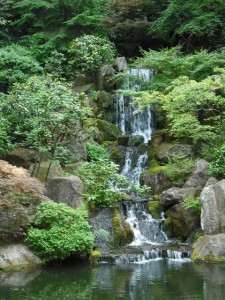Think: calm. Think: flexibility. Think: steady breathing. Think about energy flowing through you, around you, within you. Think about connecting your feet to the earth and your hands with the cosmos. Think about the ancient practice of Tai Chi. Now think about practicing Tai Chi in your contemplative garden space.
Tai Chi is a mainstay of class listings at many botanical gardens, but you don’t have to have a grand or professionally landscaped space to reap the benefits of this ancient Chinese contemplative practice.
Tai Chi is often called “meditation in motion.” The mind-body connection and flow of energy remains consistent throughout the practice. The energy is called “Qi,” (pronounced “chee”), and is made up of two different qualities: Yin (solid, dark, cold, passive) and Yang (light, warm, active). The concept of yin and yang—two opposites working together, or soft movements overcoming hard movements—is central to the practice of Tai Chi. Movements are geared toward absorbing and transferring energy. Tai Chi is a whole body spiritual practice that melds the two parts of Qi, the Yin and the Yang together.
The exchange of energy between internal and external forces is amplified when you practice Tai Chi in the garden, as opposed to doing so in an empty room. When you practice Tai Chi in the garden, you’re also adding another dimension—connecting with mother nature and the living beings that surround you. In the garden, the sights, smells, sounds, and gentle touches of a passing breeze or plant waving in the wind remind you that there are other energies coming into contact with your own. As you calmly proceed through the Tai Chi movements, you practice the art of responding to energy directed your way, and allowing it to flow around you. Sounds like a good skill for life, right?








